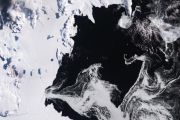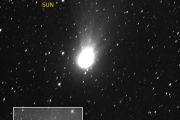
Copernical Team
SpaceX says likely won't need 42,000 satellites for Starlink internet
 SpaceX, which has requested authorisation to deploy up to 42,000 satellites to provide its Starlink satellite internet service, probably won't need to launch that many into orbit, its chief operations officer said Monday.
Starlink - the satellite internet service of tech billionaire Elon Musk - offers high-speed broadband service to customers in areas that are poorly or not served by fixed
SpaceX, which has requested authorisation to deploy up to 42,000 satellites to provide its Starlink satellite internet service, probably won't need to launch that many into orbit, its chief operations officer said Monday.
Starlink - the satellite internet service of tech billionaire Elon Musk - offers high-speed broadband service to customers in areas that are poorly or not served by fixed Blue Origin rocket suffers booster failure, prompting emergency abort system
 Blue Origin's New Shepard rocket suffered a booster failure after lifting off Monday morning, causing an emergency abort system to separate the capsule from the booster.
The unmanned mission was carrying 36 payloads from academia, research institutions, and students across the globe and was expected to reach the edge of space and return in a series of suborbital flights.
It was t
Blue Origin's New Shepard rocket suffered a booster failure after lifting off Monday morning, causing an emergency abort system to separate the capsule from the booster.
The unmanned mission was carrying 36 payloads from academia, research institutions, and students across the globe and was expected to reach the edge of space and return in a series of suborbital flights.
It was t Uncrewed Blue Origin rocket crashes, capsule recovered
 An uncrewed Blue Origin rocket carrying research payloads crashed shortly after liftoff on Monday, but the capsule carrying experiments escaped and floated safely back to Earth, Jeff Bezos' space company said.
The company tweeted a short video clip showing the moment when the capsule fired emergency thrusters to separate from its booster rocket, around a minute after launching from Blue Orig
An uncrewed Blue Origin rocket carrying research payloads crashed shortly after liftoff on Monday, but the capsule carrying experiments escaped and floated safely back to Earth, Jeff Bezos' space company said.
The company tweeted a short video clip showing the moment when the capsule fired emergency thrusters to separate from its booster rocket, around a minute after launching from Blue Orig Bezos rocket fails during liftoff, only experiments aboard
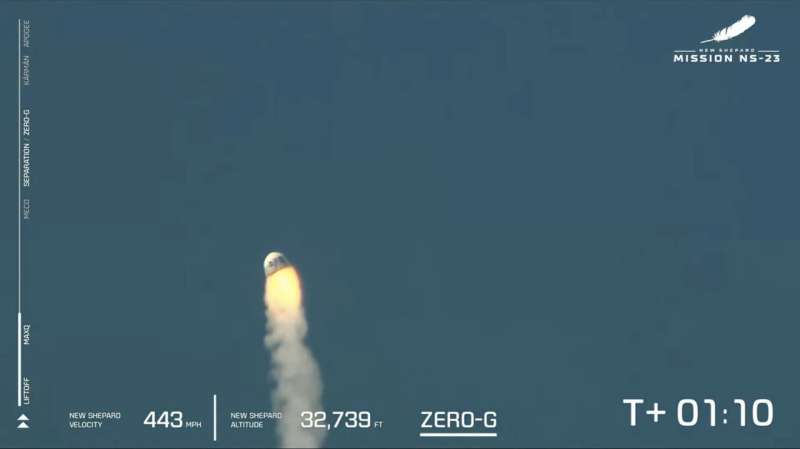
Jeff Bezos' rocket company suffered its first launch failure Monday.
NASA to Host Briefing on Perseverance Mars Rover Mission Operations
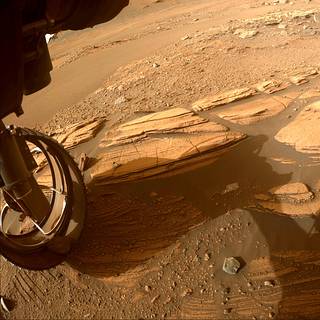 NASA will host a briefing at 11:30 a.m. EDT (8:30 a.m. PDT) on Thursday, Sept. 15, at the agency’s Jet Propulsion Laboratory in Southern California to provide highlights from the first year and a half of the Perseverance rover’s exploration of Mars.
NASA will host a briefing at 11:30 a.m. EDT (8:30 a.m. PDT) on Thursday, Sept. 15, at the agency’s Jet Propulsion Laboratory in Southern California to provide highlights from the first year and a half of the Perseverance rover’s exploration of Mars. A thousand days of CHEOPS
 After a thousand days in orbit, the CHEOPS space telescope shows almost no signs of wear. Under these conditions, it could continue to reveal details of some of the most fascinating exoplanets for quite some time. CHEOPS is a joint mission by the European Space Agency (ESA) and Switzerland, under the aegis of the University of Bern in collaboration with the University of Geneva.
Since its
After a thousand days in orbit, the CHEOPS space telescope shows almost no signs of wear. Under these conditions, it could continue to reveal details of some of the most fascinating exoplanets for quite some time. CHEOPS is a joint mission by the European Space Agency (ESA) and Switzerland, under the aegis of the University of Bern in collaboration with the University of Geneva.
Since its Thales Alenia Space Partners With Kythera Space Solutions for Advanced Space Inspire Mission Segment Software
 Kythera Space Solutions (Kythera), the leading provider of dynamic management systems for next-generation payloads and SATCOM networks, has entered into a 10-year partnership with Thales Alenia Space, a Joint Venture between Thales (67 %) and Leonardo (33 %), to develop the Ground Mission Segment System (GMSS) for Thales Alenia Space's software-defined satellite (SDS) product line, Space Inspire
Kythera Space Solutions (Kythera), the leading provider of dynamic management systems for next-generation payloads and SATCOM networks, has entered into a 10-year partnership with Thales Alenia Space, a Joint Venture between Thales (67 %) and Leonardo (33 %), to develop the Ground Mission Segment System (GMSS) for Thales Alenia Space's software-defined satellite (SDS) product line, Space Inspire PCX Aerosystems Announces Acquisition of NuSpace
 PCX Aerosystems ("PCX"), a market-leading producer of advanced mechanical systems for the aerospace industry, announced the September 2, 2022 acquisition of NuSpace, Inc. ("NuSpace") from Cornerstone Capital Holdings and members of the NuSpace leadership team. With engineering and manufacturing roots going back to 1907, NuSpace has evolved from a diversified mechanical systems manufacturer into
PCX Aerosystems ("PCX"), a market-leading producer of advanced mechanical systems for the aerospace industry, announced the September 2, 2022 acquisition of NuSpace, Inc. ("NuSpace") from Cornerstone Capital Holdings and members of the NuSpace leadership team. With engineering and manufacturing roots going back to 1907, NuSpace has evolved from a diversified mechanical systems manufacturer into Solar switchback mystery solved
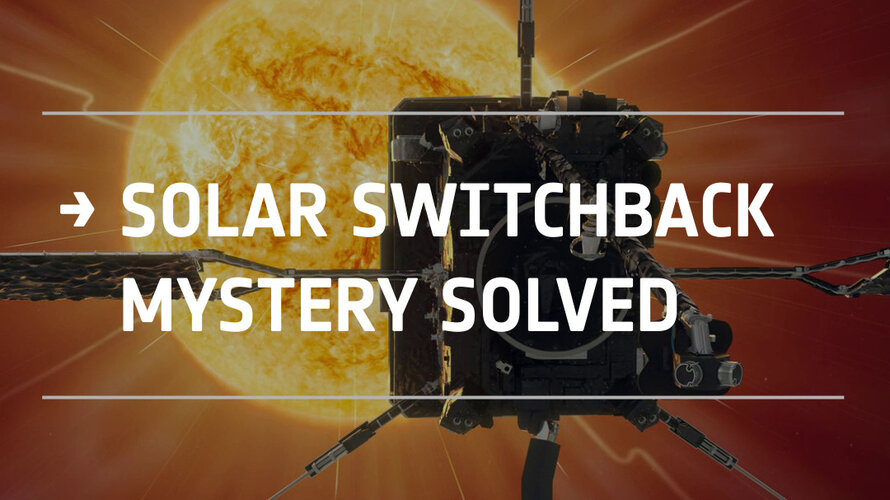 Video:
00:00:58
Video:
00:00:58
ESA’s Solar Orbiter has solved the mystery of a magnetic phenomenon in the solar wind. It has taken the first ever image of a ‘switchback’ in the solar corona, confirming its predicted ‘S’ shape. A switchback is defined by rapid flips in magnetic field direction. The observed switchback is linked to an active region associated with sunspots and magnetic activity where there is an interaction between open and closed magnetic field lines. The interaction releases energy and sends the S-shaped disturbance into space. The new data suggest that switchbacks could originate near the solar surface, and may
Alex on the rocks
 Image:
Image:
ESA astronaut Alexander Gerst and NASA astronaut Stephanie Wilson are getting world-class geology training this week during the fifth edition of ESA’s Pangaea course.
A balanced mix of theory and field trips, the course will take the pair all over Europe to hone their geology skills. The training began last week in the Italian Dolomites with lessons on fundamental geology knowledge and skills, martian geology and asteroids at Bletterbach Canyon.
The rock samples from the canyon Alexander is holding in this image are a combination of gypsum (white hue) in siltstone-sandstone (reddish hue), and are analogous to rocks found on Mars.














